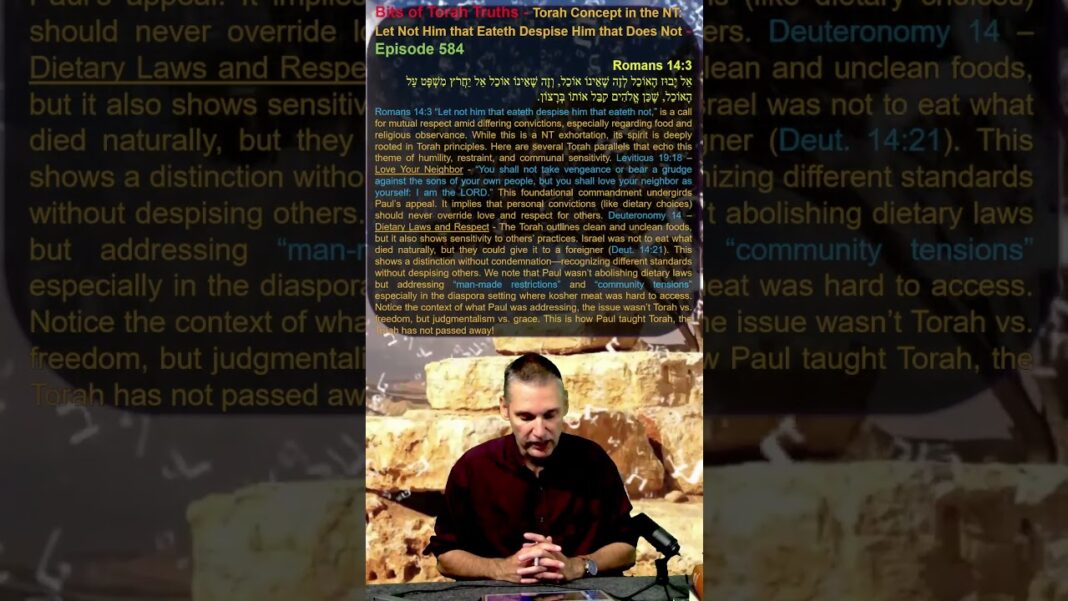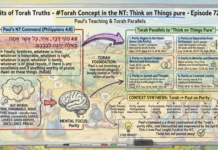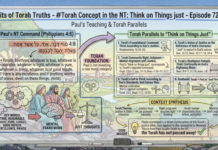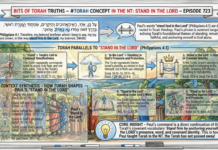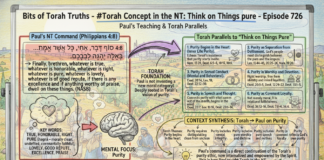Bits of Torah Truths – Torah Concept in the NT: Let Not Him that Eateth Despise Him that Does Not – Episode 584
Romans 14:3
אַל יָבוּז הָאוֹכֵל לְזֶה שֶׁאֵינוֹ אוֹכֵל, וְזֶה שֶׁאֵינוֹ אוֹכֵל אַל יַחֲרֹץ מִשְׁפָּט עַל הָאוֹכֵל, שֶׁכֵּן אֱלֹהִים קִבֵּל אוֹתוֹ בְּרָצוֹן.
#torah #torahwisdom #torahtruth #torahforlife #torah4you #torahtruth
Romans 14:3
14:3 The one who eats is not to regard with contempt the one who does not eat, and the one who does not eat is not to judge the one who eats, for God has accepted him. (NASB)
https://www.matsati.com/index.php/category/bits-of-torah-truths/
Romans 14:3 “Let not him that eateth despise him that eateth not,” is a call for mutual respect amid differing convictions, especially regarding food and religious observance. While this is a NT exhortation, its spirit is deeply rooted in Torah principles. Here are several Torah parallels that echo this theme of humility, restraint, and communal sensitivity. Leviticus 19:18 – Love Your Neighbor – “You shall not take vengeance or bear a grudge against the sons of your own people, but you shall love your neighbor as yourself: I am the LORD.” This foundational commandment undergirds Paul’s appeal. It implies that personal convictions (like dietary choices) should never override love and respect for others. Deuteronomy 14 – Dietary Laws and Respect – The Torah outlines clean and unclean foods, but it also shows sensitivity to others’ practices. Israel was not to eat what died naturally, but they could give it to a foreigner (Deut. 14:21). This shows a distinction without condemnation—recognizing different standards without despising others. We note that Paul wasn’t abolishing dietary laws but addressing “man-made restrictions” and “community tensions” especially in the diaspora setting where kosher meat was hard to access. Notice the context of what Paul was addressing, the issue wasn’t Torah vs. freedom, but judgmentalism vs. grace. This is how Paul taught Torah, the Torah has not passed away!
